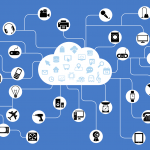 I have been asked if an internet connection is required, to be able to access “the cloud”.
I have been asked if an internet connection is required, to be able to access “the cloud”.
I admit it gave me the giggles, which I (somewhat?) managed to suppress, enough to explain that — short answer — the cloud is the internet.
You didn’t think we were going to be talking about the big fluffy things, did you?
Cloud Computing
The term “cloud computing” refers to the act of using remote servers over a network, to access/store/manage/process resources and data.
Some common examples of cloud computing include interaction with the following, at least in their online forms:
Emails
Websites
Calendars
Documents
Music/Media
Photos/Videos
Social Media Platforms
Web Apps (Cloud Apps)
Cloud Storage
The term “cloud storage” refers to data stored on remote servers, which can be accessed by anyone, at any time, on any internet-capable device (as long as they have permission/credentials to access it).
Storing data in the cloud allows for it to be shared very easily.
Cloud storage is also very useful as a remote backup. It’s even more intriguing, in that the backup can then be accessed from any location necessary, at any time, with little to no notice – unlike the backup hard drive that you snail-mailed to your mother.
Some popular cloud storage services are:
Dropbox
FileFactory
RackSpace
Google Drive
Microsoft One Drive
Amazon Cloud Drive
How Big Is the Cloud?
You may have just asked one of the hardest questions that I’ve ever been confronted with. In fact, it’s pretty much un-answerable.
I’m going to just leave this one with an answer of “limitless”, rather than attempting to do the math, which would involve calculating the storage space (used or unused) of every single server on the internet.
Conclusion
Yes, you need internet to access to the cloud.
No, these clouds are not likely to rain on you.
How often do you use the cloud?
